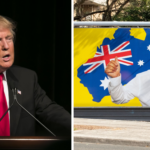The Return of Albanese in Majority Signals Further Relinquishing Control to the US

The resounding rejection of the Liberal Nationals at last Saturday’s federal election saved the nation from a potential authoritarian power grab at the hands of former Liberal leader Peter Dutton, which is a fate that’s been averted moving into the future, as not only did his party lose, but the former home affairs minister lost his Queensland seat of Dickson after two decades of being in office.
At the time of writing, the returned Labor government had secured 85 seats in the lower house with the Coalition flaying around behind it somewhere with 39 seats.
The Australian PM is once again Anthony Albanese, the first western leader to ever be recommended to the International Criminal Court (ICC) in relation to atrocities crimes, with the complaint against him being genocide complicity.
So, we’re now in for something of repeat of the last term of politics that saw cover provided for Israel in committing genocide, along with fumbling about on dual cost-of-living and housing crises, ending the “climate wars” via the greenlighting of new fossil fuel projects, the continuing war on whistleblowers, and also inquiries from an anticorruption watchdog that was dead on arrival.
Indeed, as the constituency pats itself on the back for its apparent rejection of Trumpian politics, it should be noted that US voters would likely have done the same if they had a post-inauguration understanding of them, and further, our nation was revelling on Monday, over the election response of US president Donald Trump in his having praised Albanese as “very good” and “a friend”.
So, in Australia’s apparent ousting of Dutton and the Liberals as the potential wreckers of our domestic sphere, it has simultaneously given a blank cheque to federal Labor to continue with its ongoing relinquishing of military control over this continent, along with that of the Australian military, to the US, under its current Trump administration, to blindly follow it wherever it may stray.
A strengthened duopoly
For the large movement seeking significant reform in federal politics via the shifting of the makeup of parliament, which had hoped to alleviate the broad domestic monetary crisis and overhaul a foreign policy that recognises mass murder of civilians as self-defence for political expediency, the landslide victory of the Albanese government was not the desired outcome.
The 2022 federal election was marked by a large distinctive shift in voters turning away from the major parties towards the Greens and independents, which was dubbed a greenslide, as voters who were no longer satisfied with the types of political outcomes the major parties had been progressing were hoping for further such gains in crossbench size for the 48th Australian parliament.
This growing third sector of voters, who no longer hold a particular loyalty to either of the major parties, was ideally hoping for a minority Labor government returned with broader crossbench representation that would have been able to steer the parliament away from the concerns of the majors and their corporate sponsors, and towards the concerns of grassroots people.
Indeed, over the last parliament, following the bipartisan defence of Israel in the commission of genocide, the continuation of policies that exacerbate the climate crisis and the inability of the major parties to progress reforms to help regular constituents with the cost-of-living, the use of the term “the duopoly” to refer to both major parties operating in unison became part of the local vernacular.
On Saturday, the gains of the 2022 greenslide were for the most part repeated, as so-called teal independents were returned, and the Greens likely now have a larger presence in the Senate than ever before.
So, the Albanese government will continue to be beholden to a progressive crossbench in order to facilitate the passage of certain pieces of legislation in the Senate that buck the duopoly trend in parliament. Yet, this had always been the case over the years of the 47th Australian parliament.
The further dramatic shift in politics that had been sought at the 3 May ballot has not been forthcoming, however, and broadly speaking, this means a repeat of the travesties of the last three years in Australian politics are likely to be up around the bend once more, only in slightly different form.
On “very friendly” terms
The Albanese government has been in power over the entire 18 months of the Gaza genocide.
Despite being former stalwart advocates for Palestine, the PM and foreign minister Penny Wong bent over backwards during the last term to claim that the mass slaughter of Palestinian civilians in Gaza has been all about self-defence on the part of Israel, and federal Labor has never outright condemned Tel Aviv over its committing of the worst atrocity since the World War II Holocaust.
So overt was this covering for the state of Israel in its mass commission of international atrocity crimes, that Australian law firm Birchgrove Legal produced a detailed genocide complicity claim against Albanese, Wong and other high profile politicians, including Dutton, which ICC prosecutor Karim Khan has accepted and incorporated into the court’s broader Situation in Palestine inquiry.
The ICC Palestine inquiry is also the official investigation that permitted the highest criminal court on the planet to issue an international arrest warrant against Israeli PM Benjamin Netanyahu in respect of multiple war crimes and crimes against humanity in Gaza. Yet, in March, Wong refused to confirm whether Australia would arrest Netanyahu on local soil, despite being obliged to.
Albanese further spent the last term allowing the US to take control of multiple bases across this continent, which in turn is increasing US military control within our borders, and it’s also agreed to establish a US submarine base in WA, along with constructing two nuclear waste dumps at US behest, and its permitted Washington to designate Australia as a domestic military source in law.
With Monday’s embrace of the loving relationship between US president Trump and our prime minister, any change of position on Gaza, a US financed genocide, on the part of Albanese, or any attempt to back pedal on the US inroads he’s opened this country up to during his first term in office, are hardly likely to be wound back, especially as it’s now probably beyond our PM’s control.
All aboard the sinking AUKUS submarines
The cost-of-living crisis was the most important issue on the agenda for the 2025 Australian federal election, and a landslide victory has been won by federal Labor.
The party now forming government for a second time is the body that had committed the nation to $368 billion worth of spending on the questionable acquisition of multiple unguaranteed nuclear-powered submarines over its last term, and the price of that package has only recently been heightened to $375 billion over the coming three decades.
But the Australian constituency did make its will known at the ballot box last Saturday, and what this comprised of was the rejection of the Trumpian style domestic politics that Dutton appeared to be promising to unleash upon this country, which in the US has seen billionaire Elon Musk slash billions from its social sector, in an effort to bring down education, health and even social security.
The local Australian constituency, however, has never been given any ability to speak on the now $375 billion AUKUS deal, which is a tidy sum for weapons to be sourced via cuts to our social sector, which will undoubtedly have the same eroding effect upon civilian rights that we’re now bearing witness to in the US under Albanese’s great friend and senior in pecking order Donald Trump.







